
Adaptation, teleology, and selection by consequences
Jon D Ringen
Abstract
This paper presents and defends the view that reinforcement and natural selection are selection processes, that selection processes are neither mechanistic nor teleological, and that mentalistic and vitalistic processes are teleological but not mechanistic. The differences between these types of processes are described and used in discussing the conceptual and methodological significance of “selection type theories” and B. F. Skinner's radical behaviorist view that “operant behavior is the field of intention, purpose, and expectation. It deals with that field precisely as the theory of evolution has dealt with another kind of purpose” (1986, p. 716). The antimentalism of radical behaviorism emerges as a post-Darwinian extension of Francis Bacon's (and Galileo's) influential view that “[the introduction of final causes] rather corrupts than advances the sciences” (Bacon, 1905, p. 302).
Keywords: reinforcement, natural selection, mechanism, mentalism, scientific explanation, causation, teleology
Full text
PDF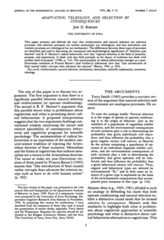
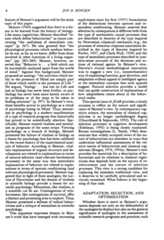
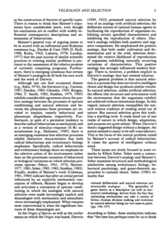
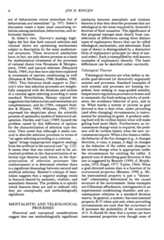
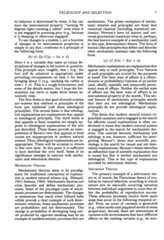
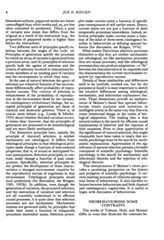
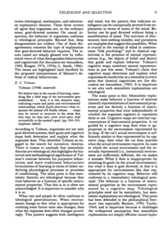
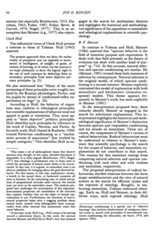
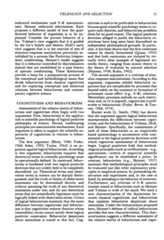
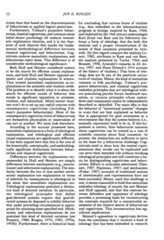
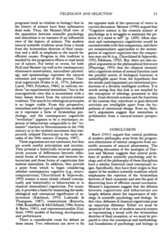
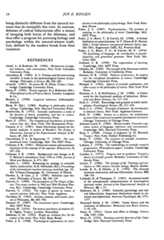
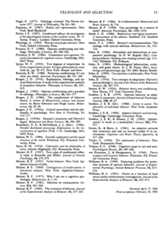
Selected References
These references are in PubMed. This may not be the complete list of references from this article.
- Lenski R. E., Mittler J. E. The directed mutation controversy and neo-Darwinism. Science. 1993 Jan 8;259(5092):188–194. doi: 10.1126/science.7678468. [DOI] [PubMed] [Google Scholar]
- Lubinski D., Thompson T. An animal model of the interpersonal communication of interoceptive (private) states. J Exp Anal Behav. 1987 Jul;48(1):1–15. doi: 10.1901/jeab.1987.48-1. [DOI] [PMC free article] [PubMed] [Google Scholar]
- MAYR E. Cause and effect in biology. Science. 1961 Nov 10;134(3489):1501–1506. doi: 10.1126/science.134.3489.1501. [DOI] [PubMed] [Google Scholar]
- doi: 10.1901/jeab.1987.47-249. [DOI] [PMC free article] [Google Scholar]
- Rescorla R. A. Pavlovian conditioning. It's not what you think it is. Am Psychol. 1988 Mar;43(3):151–160. doi: 10.1037//0003-066x.43.3.151. [DOI] [PubMed] [Google Scholar]
- Skinner B. F. Selection by consequences. Science. 1981 Jul 31;213(4507):501–504. doi: 10.1126/science.7244649. [DOI] [PubMed] [Google Scholar]
- Skinner B. F. The evolution of behavior. J Exp Anal Behav. 1984 Mar;41(2):217–221. doi: 10.1901/jeab.1984.41-217. [DOI] [PMC free article] [PubMed] [Google Scholar]
- Sohn D. Two concepts of adaptation: Darwin's and psychology's. J Hist Behav Sci. 1976 Oct;12(4):367–375. doi: 10.1002/1520-6696(197610)12:4<367::aid-jhbs2300120408>3.0.co;2-e. [DOI] [PubMed] [Google Scholar]
- Staddon J. E., Hinson J. M. Optimization: a result or a mechanism? Science. 1983 Sep 2;221(4614):976–977. doi: 10.1126/science.6879199. [DOI] [PubMed] [Google Scholar]
- Williams B. A. Choice as a function of local versus molar reinforcement contingencies. J Exp Anal Behav. 1991 Nov;56(3):455–473. doi: 10.1901/jeab.1991.56-455. [DOI] [PMC free article] [PubMed] [Google Scholar]
- Williams B. A. Enduring problems for molecular accounts of operant behavior. J Exp Psychol Anim Behav Process. 1990 Apr;16(2):213–221. doi: 10.1037/0097-7403.16.2.213. [DOI] [PubMed] [Google Scholar]